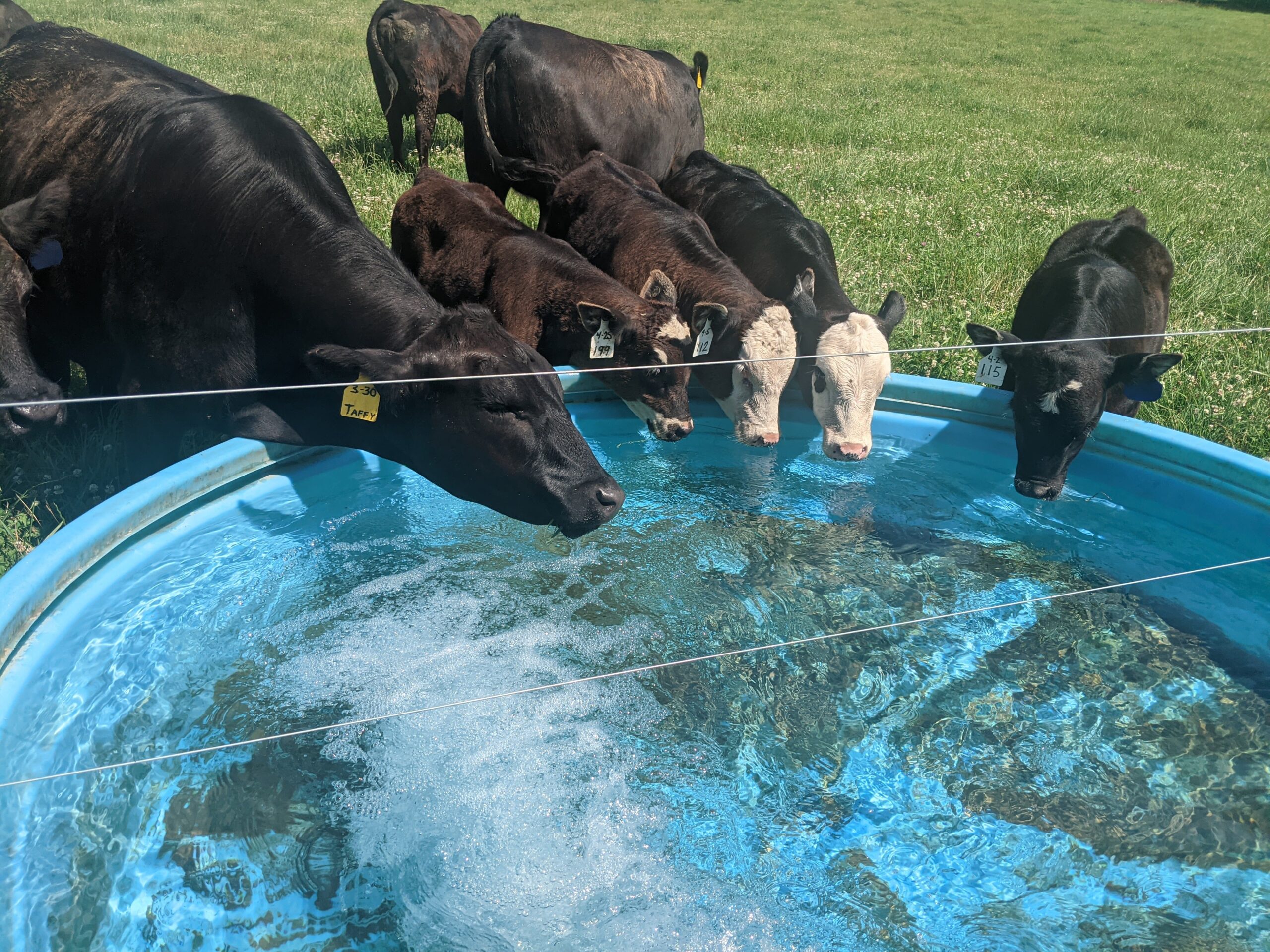Summer is finally here which means HOT weather and sunshine. It’s important to be proactive during this time to keep your animals hydrated. Just like us, animals need a constant supply of fresh water to maintain essential bodily functions. It can be easy to forget this when you’re out having fun in the sun. But, it’s more than just giving them a bowl of water each day. This is why we’re sharing with you a few essential tips for keeping your animals hydrated all summer long.
Did you know?
According to PetMD, dogs need around 1 ounce of water (1/8 of a cup) per each pound of body weight a day. So a 10-pound dog should drink roughly 10 fluid ounces per day; a 100-pound dog should drink roughly 100 fluid ounces.
The land mammal that consumes the most water per pound of body weight is the cow. A single dairy cow can consume up to 100 gallons of water a day during hot summer months, and that adds up. During periods of heat stress, water intake may double.
An idle, 1,100-pound horse in a cool environment will drink 6 to 10 gallons of water per day. That amount may increase to 15 gallons per day in a hot environment. Workhorses require 10-18 gallons of water per day on average but could require much more in hot weather.
Daily water needs for pigs range from < 0.5 gal/pig/day for newly weaned pigs to greater than 1.5 gal/pig/day for grow-finish pigs utilizing nipple drinkers. Water requirements for breeding swine range from 4 gal/day for gestating females and 6 gal/ day for lactating swine.
Goats need two to three gallons of water daily. However, goats may get by on only about a half gallon a day or less while grazing lush green grass. In addition, a lactating doe requires more than two to three gallons of water, depending on how much she is getting from grass and how much milk she is producing.
Rabbits’ and other small animals' typical water intake is 50-150 ml/kg/day. And cats need a daily amount of about 3.5 to 4.5 ounces of water per 5 pounds of their body weight.
That’s a lot of water especially when living on a farm and having to provide for more than one animal. Wondering if your animal is getting enough water?
Here are a few signs if they’re dehydrated:
- Lethargy
- Unresponsiveness
- Excessive panting/gasping
- Sunken-looking eyes
- Dry-feeling mouth and nose
- Weakness
- Loss of skin elasticity (gently pinch an area of their skin and note how slowly it snaps back)
Pay close attention to your pet when outside, and watch for cues that they are overheating or dehydrated. If you are concerned they may be dehydrated, seek medical attention immediately. Depending on the severity of the condition, it may not be a simple matter of putting a fresh water bowl in front of them, so getting a veterinary analysis is crucial.
Here are a few tips for keeping your animal hydrated this summer:
Do you fill up the water bowl one day and wait for it to become completely empty before refilling it? Remember to regularly replenish the bowl and provide fresh water for your pets. Many animals won’t drink dirty water, so even if the water bowl isn’t empty, it’s important to refresh it a few times a day.
Moving water is irresistible to many pets, especially cats. Running water fountains are excellent at keeping the water fresh and encourage your cat to drink water.
Hitting the road for vacation and taking your pet in the car? Always take water with you on long car rides and let your dog out for bathroom breaks whenever necessary.
Whether it’s a walk around the block, a jog through the neighborhood, or playing at the dog park, your dog can become thirsty more quickly when the temperature is warmer. Make sure to bring a portable water bowl with you and allow for breaks.
To avoid water deprivation, ensure water is readily available to your livestock daily. If your livestock have automatic water systems, remember to check them as part of your daily routine.
Check the pumps that draw water from wells. Make sure troughs and tanks contain water. Ensure nipple waterers in barns are working properly.
July is National Pet Hydration Month
Did you know that July is the hottest month of the year in the northern hemisphere? Appropriately, July also happens to be National Pet Hydration Month. While this month of awareness was established in the United States, it’s the perfect time for pet parents around the world to take stock of what they’re doing to keep animals hydrated and healthy.
Stop by Martin’s Feed Mill and shop our wide selection of products and supplies to keep your animals hydrated and healthy year-round.
Attending this year’s Grange Fair? Follow @martinsfeedmill to take part in our upcoming giveaway! One lucky person will win 2 Grange Fair tickets and a parking pass.
